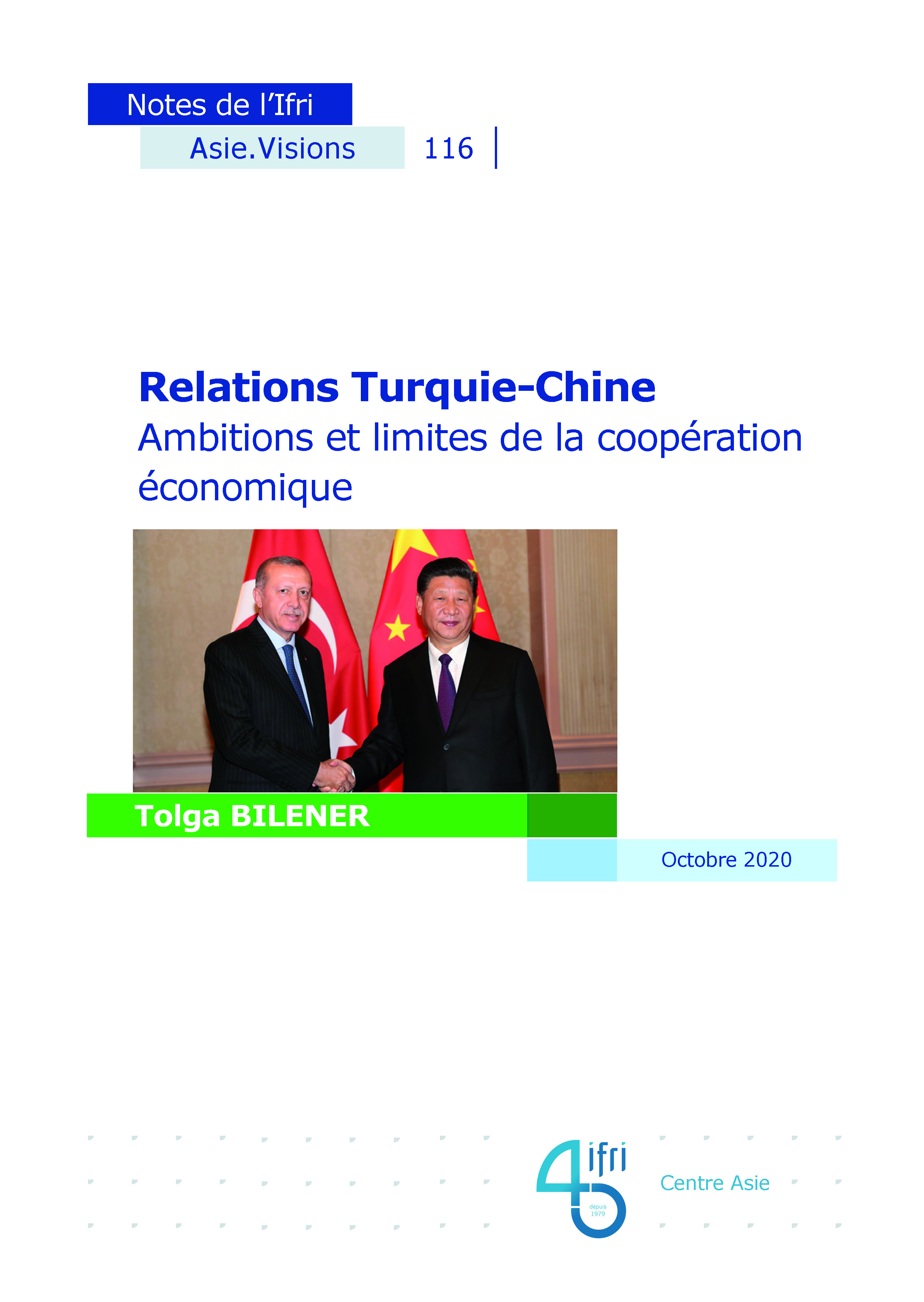Turkey-China Relations: Ambitions and Limits of the Economic Cooperation

At first glance, China and Turkey have many interests to cooperate. The deployment of the Chinese Belt and Road Initiative (BRI), Turkey's colossal investment and financing needs, as well as President Erdogan's mistrust of the West, appear as many converging interests. Yet economic cooperation between the two countries is struggling to achieve its full potential. Political differences persist, particularly the question of the Uyghurs.
Relations between the People's Republic of China - a major economic and diplomatic power whose re-emergence on the international scene is one of the major subjects of international politics - and Turkey, - a regional power whose weight counts in the evolution of Eastern Mediterranean balances - offer a complementary vision for the study of contemporary international relations. These highlight the instruments and priorities of China when it implements its foreign policy, even more proactive under Xi Jinping, and allows testing Chinese ambitions in various geographical areas of the world. As for Turkey, studying its relations with this geopolitical giant provides an additional view ofits new foreign policy under R. Tayyip Erdoğan, marked by critical ebbs and flows in its relationship with its traditional Western allies.
The economic aspect emerges as the priority in Sino-Turkish relations, as China had become, over the past decade, one of Turkey's three largest trading partners, along with Germany and Russia. Even if Turkey does not seem to be a priority for Chinese diplomacy, it still remains an important player with its domestic market of 83 million inhabitants, but especially with its geographical position. Turkey is all the more interesting for the Chinese leadership in the context of the New Silk Roads project.
In addition, the Uyghur question makes it that relations between these two states are not confined solely to the economic field, adding a domestic policy component because of the sensitivities of nationalist segments of Turkish public opinion, and national security concerns of China. Consequently, there exist a series of obstacles in the path of a closer China-Turkey rapprochement.
This report is only available in French.
Download the full analysis
This page contains only a summary of our work. If you would like to have access to all the information from our research on the subject, you can download the full version in PDF format.
Turkey-China Relations: Ambitions and Limits of the Economic Cooperation
Related centers and programs
Discover our other research centers and programsFind out more
Discover all our analyses
RAMSES 2024. A World to Be Remade
For its 42nd edition, RAMSES 2024 identifies three major challenges for 2024.

France and the Philippines should anchor their maritime partnership
With shared interests in promoting international law and sustainable development, France and the Philippines should strengthen their maritime cooperation in the Indo-Pacific. Through bilateral agreements, expanded joint exercises and the exchange of best practices, both nations can enhance maritime domain awareness, counter security threats and develop blue economy initiatives. This deeper collaboration would reinforce stability and environmental stewardship across the region.

The China-led AIIB, a geopolitical tool?
The establishment of the Asian Infrastructure Investment Bank (AIIB) in 2016, on a Chinese initiative, constituted an attempt to bridge the gap in infrastructure financing in Asia. However, it was also perceived in the West as a potential vehicle for China’s geostrategic agendas, fueling the suspicion that the institution might compete rather than align with existing multilateral development banks (MDBs) and impose its own standards.
Jammu and Kashmir in the Aftermath of August 2019
The abrogation of Article 370, which granted special status to the state of Jammu and Kashmir (J&K), has been on the agenda of the Bharatiya Janata Party (BJP) for many decades.






